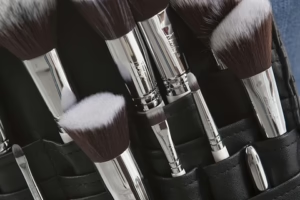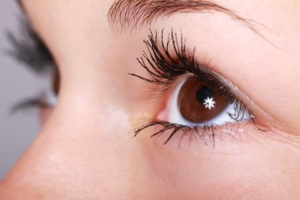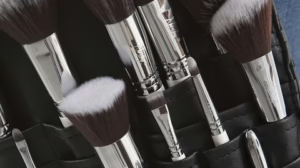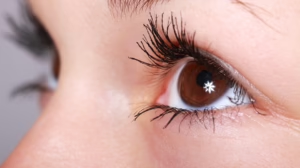Makeup Remover Myths: What You Need to Know!
Makeup is an integral part of many people’s daily routines, providing not just aesthetic benefits but also serving as a form of self-expression. However, the process of removing that makeup can sometimes be misunderstood, leading to various myths about how to do it effectively and safely. This article aims to debunk common makeup remover myths and provide you with the essential knowledge you need for effective makeup removal.
The Importance of Makeup Removal
Before diving into the myths, it’s crucial to understand why makeup removal matters. Leaving makeup on overnight can lead to several skin issues, including clogged pores, breakouts, and even premature aging. The skin needs to breathe and regenerate during the night, and removing makeup is a vital part of that process. Using the right makeup remover not only cleanses the skin but also helps maintain its health and vibrancy.
Common Makeup Remover Myths
Myth 1: All Makeup Removers Are the Same
Many people assume that all makeup removers perform the same function, but this is far from true. There are various types of makeup removers—cleansers, wipes, oils, and micellar waters—each tailored to different skin types and makeup formulations. For instance, waterproof makeup typically requires an oil-based remover for effective cleansing, while lighter formulations can often be removed with a gentle lotion or a cream.
Reality: Choosing the right formula is essential for effective makeup removal. Not all products work for every skin type or makeup style.
Myth 2: You Don’t Need to Remove Makeup If You Didn’t Wear It All Day
Some people believe that if they only wore makeup for a short period, it’s fine to skip the removal stage. This misconception could lead to daily accumulation of grime, oils, and makeup residue, which can ultimately harm your skin.
Reality: Even minimal makeup can clog pores and irritate the skin. Taking the time to remove makeup, regardless of how long it was worn, is crucial for maintaining skin health.
Myth 3: Makeup Wipes Are Just as Effective as Liquid Remover
While makeup wipes are convenient, they often don’t fully cleanse the skin. Many people use them as a one-step solution, failing to realize that they may not remove all traces of makeup, especially stubborn eye products. Additionally, some makeup wipes can contain alcohol or other irritants that might exacerbate skin issues.
Reality: It’s often best to use a makeup wipe as a first step in the cleansing process, followed by a traditional cleanser or double cleansing method for complete removal.
Myth 4: You Should Rub Your Skin Hard to Remove Makeup
This misconception stems from a desire for quick results, but aggressive rubbing can damage the skin. It can cause irritation, redness, and fine lines over time. Gentle is the key; being liberal with product and using soft motions is a far more effective and safer approach.
Reality: Always use a gentle hand when removing makeup. Allow the product to dissolve the makeup, reducing the need for scrubbing.
Myth 5: Natural Oils Are Bad for Your Skin
Another myth is that natural oils can clog pores and worsen acne. While it’s true that some oils can be comedogenic (pore-clogging), many oils, like jojoba and grapeseed oil, are non-comedogenic and can actually help to dissolve makeup effectively.
Reality: Depending on your skin type, certain natural oils can actually improve your skin’s health while effectively removing makeup.
Myth 6: Micellar Water Doesn’t Need Rinsing
Micellar water is revered for its gentleness and effectiveness, but many people think it doesn’t require rinsing. While it’s formulated to clean the skin, some makeup remnants or residue may be left behind if not rinsed, especially if a large volume of product is used.
Reality: It’s a good idea to follow up with a rinse to ensure that all makeup and impurities are removed from the skin.
Myth 7: You Can Skip Eye Makeup Remover
Many people assume that any makeup remover will suffice for removing eye makeup. However, the skin around the eyes is delicate and can be easily irritated by harsh chemicals found in standard makeup removers. Specialized eye makeup removers are often formulated to be gentler yet effective.
Reality: Use a dedicated eye makeup remover for the sensitive area around the eyes to avoid irritation and discomfort.
Tips for Effective Makeup Removal
Now that we’ve debunked some prevalent myths, here are some tips to ensure you remove your makeup effectively:
-
Choose the Right Product: Select a makeup remover that suits your skin type and the kind of makeup you are using. If you have sensitive skin, opt for fragrance-free and hypoallergenic products.
-
Take Your Time: Don’t rush through the makeup removal process. Taking your time helps to ensure that all remnants of makeup are effectively cleaned.
-
Use a Soft Cloth: Consider using a soft microfiber cloth for added gentleness, especially when removing eye makeup.
-
Double Cleanse: For thorough removal, especially if you wear heavy makeup, follow up your initial cleansing step with a second cleanse. This can be done using a gentle cleanser suited to your skin type.
-
Stay Hydrated: Drinking plenty of water helps maintain overall skin health, making it easier to manage after makeup removal.
-
Follow with Skincare: After removing your makeup, it’s important to apply a toner or serum appropriate for your skin type to nourish the skin.
Conclusion
Understanding the facts surrounding makeup removal can make a significant difference in your skincare routine. By debunking these myths and adopting effective practices, you can maintain healthy, glowing skin while enjoying the fun of makeup.
It’s essential to stay informed and tailored in your approach to skincare. The next time you sit down to remove your makeup, remember these insights. Your skin will thank you for it!
References
- American Academy of Dermatology
- Skin Cancer Foundation – Skincare
- Journal of Cosmetic Dermatology
- Dermatology Times – Cleansing Practices
- The Skin Cancer Foundation
Note
For a more personalized approach, consider consulting with a skincare professional or dermatologist to find the best makeup removal techniques and products tailored specifically for your skin type and concerns.


























Add Comment